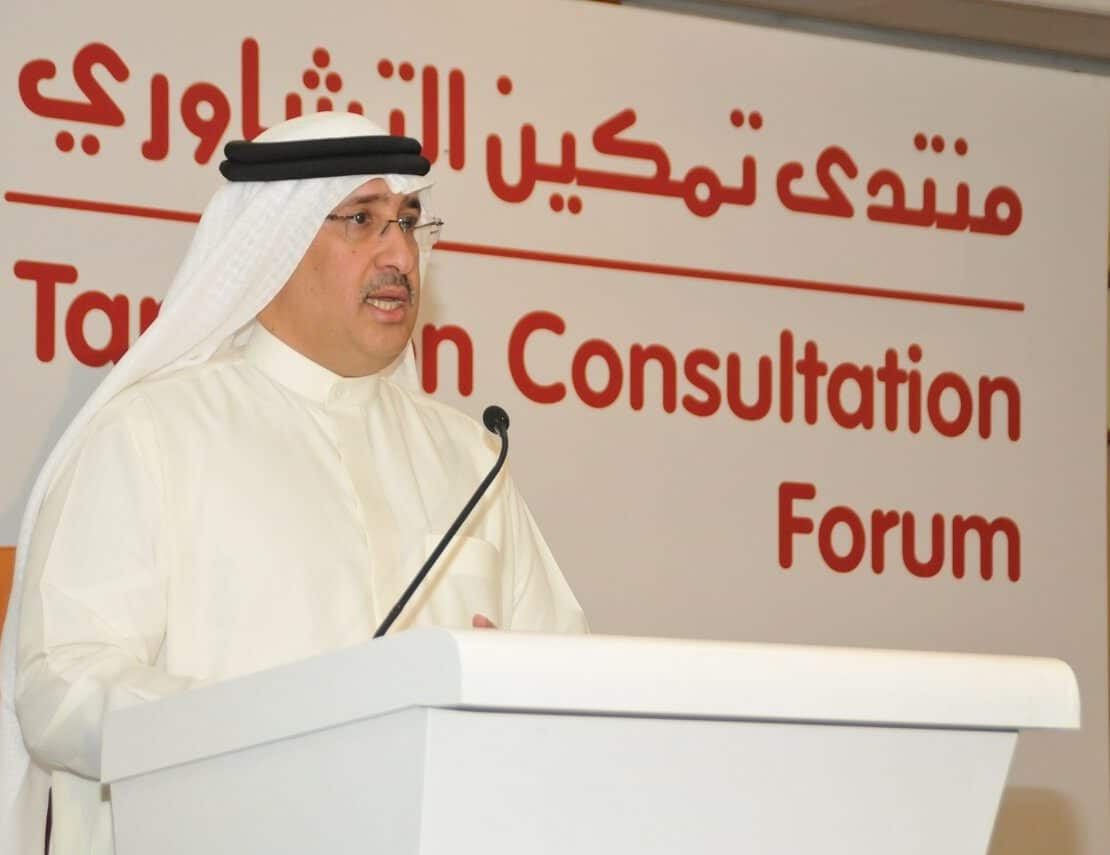Discussions on ways to further develop its support programmes were intense and lively during Tamkeen recent Consultation Forum with various private sector representatives and stakeholders. The two-day event, which was held on March 31st and April 1st saw participation from around 400 people, is part of Tamkeen efforts to enhance its services and direct engagement with the public.
Tamkeen’s Chairman and Acting Chief Executive Shaikh Mohammed bin Essa Al Khalifa, stressed the importance of such direct engagements to Tamkeen’s programmes and overall strategy, in line with the pillars of its 2014 Operational Plan, which focuses on enhancing quality, and a more focused customer-oriented and results-oriented approach to address the ever-changing dynamics of the market.
Shaikh Mohammed bin Essa Al Khalifa further noted that the outcomes of the consultations will be at the core of next year’s operational plan and overall strategy for 2015 – 2017. The outcomes will also play a key role in the re-structuring and impact assessment exercise currently being carried out by Tamkeen, which is expected to be completed by September of this year.
He underlined Tamkeen’s ongoing commitment to support the private sector in parallel with the restructuring process, noting that it earmarked a record BD 80 million to support the private sector in 2014.
Shaikh Mohammed’s address was followed by a review of the solutions being implemented to improve services based on the results of the consultation workshops held in October. The floor was then opened to each sector to outline the key challenges facing them and how to address them with the help of Tamkeen.
In the second session, the participants noted several challenges, chief among them was the difficulty in attracting Bahrainis to certain sectors and saturation in others, enhancing the transparency of processes and procedures, need for real-time easy access to application status and new initiatives, and focusing on enhancing quality, not quantity, of the support programmes.
Among the proposed solutions offered by participants was implementing a sophisticated customer relationship management system, revamping Tamkeen’s website, supporting the collection of market intelligence and creating a centralised database accessible to all, and subsidising rent and municipality fees for start-ups. Other suggestions included forming joint advisory committees with each sector, allocating more support to market entrants, and looking into providing a programme which offers risk management services to business owners.
During the two day, participants also raised issues such as streamlining processes to receive the support more quickly, offering scalable packages which differentiate between enterprises based on size and market maturity, support in expanding to nearby markets, enhancing outreach about support programmes, linking training with employment, and focusing more on monitoring and assessment of beneficiaries and service providers.
Tamkeen plans to hold these consultation sessions with the private sector on a regular basis, which include representatives from the Business and Finance, Healthcare and Pharmaceuticals, ICT, Manufacturing and Industry, Media and Advertising, Transport and Logistics, Wholes and Retail, Hospitality and Entertainment, Education and Training, Agriculture and Fisheries, and Real Estate and Construction sectors.

